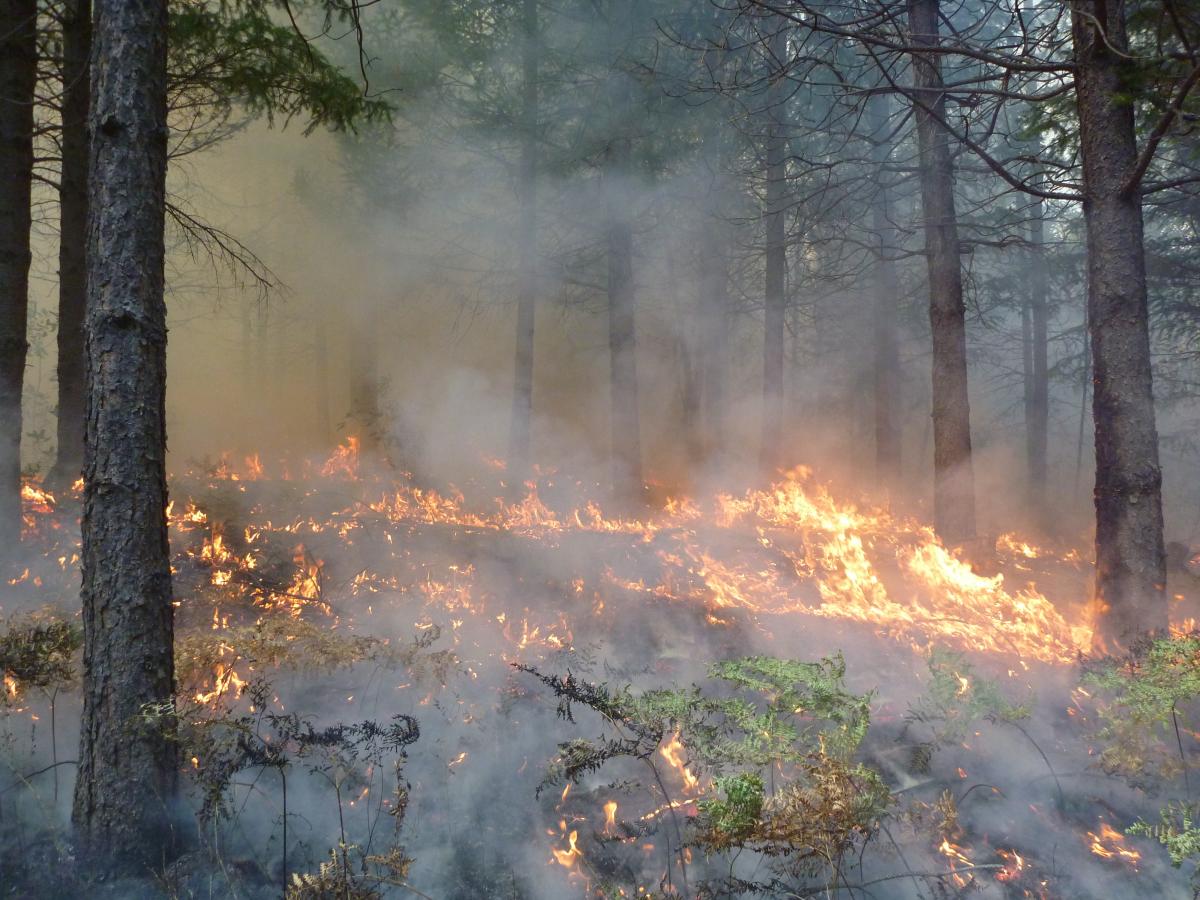
Fire plays an essential role as a fundamental ecological disturbance process in diverse ecosystems across the U.S.
Climate change presents new challenges for managing wildland fires in fire-adapted ecosystems and near the Wildland Urban Interface (WUI). Warmer annual and seasonal temperatures, increases in drought and heat-induced tree mortality, increases in vapor pressure deficit, decreases in relative humidity, and increases in fire season length are all affecting how we manage and plan for fire. Taking action now can help us inform future management, plan for increased wildfire activity across the U.S., and adapt our forests to changing fire regimes.
Learn more about Southwest FireCLIME research and resources for managing fire in a changing climate here: https://swfireclime.org.
Climate change vulnerability
Climate-wildfire-vegetation interactions are complex. Southwest FireCLIME has developed a vulnerability assessment tool to provide decision makers with better methods for identifying critical ecosystem vulnerabilities to changing climate and fire regimes to confront these challenges.
Southwest FireCLIME Vulnerability Assessment

Adaptation in Action
There is no single answer on how to best adapt to climate change, and adaptation responses will vary by location based upon the magnitude of climate impacts, the inherent resilience of ecosystems, and the values and resources of local communities. We have created resources to help land managers anticipate climate change impacts and identify actionable steps to adapt forests to changing fire regimes.
Southwest FireCLIME, in collaboration with NIACS, has developed a set of Adaptation Strategies and Approaches designed specifically for the management of fire. Drawing from a large body of scientific literature this menu is designed to be used with the Adaptation Workbook, this new resource will help managers understand and select from a wide variety of climate-informed actions that support forest adaptation for changing fire regimes.
Download the fire-adapted ecosystems adaptation menu
Find additional resources developed by the SW FireCLIME group
Kaibab National Forest Climate Adaptation Workshop
For more information on this effort contact: Martha Sample and Courtney Peterson

Work with us
We offer assistance on vulnerability assessments and adaptation projects for organizations managing forests for fire and climate adaptation. We have developed workshops, trainings, and adaptation plans tailored to forest management needs. Examples of our work include:
- Organizing and facilitating workshops and distance learning courses related to climate change impacts and ecosystem adaptation.
- Creating tools to aid adaptation of forests to climate change.
- Developing real-world examples of climate-informed forest management across a variety of land types and ownerships.
For more information on this effort contact: Martha Sample and Courtney Peterson
Partners
This effort is led by Southwest FireCLIME, Northern Arizona University, Colorado State University, U.S. Forest Service, and the Northern Institute of Applied Climate Science. We would like to thank our partners for authoring resources, providing expertise and for sharing their vision of climate-informed management of fire-adapted ecosystems.
